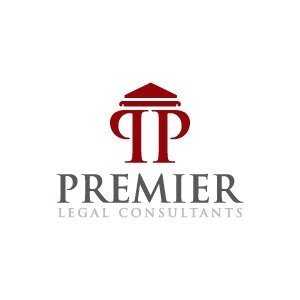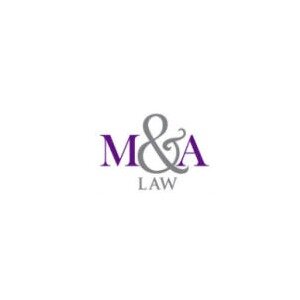Best Native People Lawyers in Sri Lanka
Share your needs with us, get contacted by law firms.
Free. Takes 2 min.
Or refine your search by selecting a city:
List of the best lawyers in Sri Lanka
About Native People Law in Sri Lanka
Sri Lanka is home to the indigenous Vedda community, often referred to as the Native People of Sri Lanka. This group is considered one of the original inhabitants of the island, with a distinct cultural identity, language, and traditional practices. The rights and recognition of the Vedda community have become an important aspect of Sri Lanka's legal landscape, particularly concerning land rights, cultural preservation, and autonomy. Legal matters pertaining to the Native People often involve the intersection of local laws, national policies, and international human rights standards.
Why You May Need a Lawyer
The legal needs of the Native People in Sri Lanka can be diverse and complex, often requiring specialized legal expertise. Common situations where people may require legal assistance include:
- Land disputes: Legal conflicts over ancestral land rights and land use are prevalent issues.
- Cultural preservation: Legal advice may be needed to protect the cultural heritage and traditional practices of the community.
- Recognition and representation: Ensuring that the Vedda community is adequately represented in governmental and legal processes.
- Human rights advocacy: Addressing issues related to discrimination, access to resources, and social services.
- Environmental laws: Legal matters concerning the protection of natural resources and sustainable practices relevant to traditional livelihoods.
Local Laws Overview
The legal framework concerning Native People in Sri Lanka comprises a combination of constitutional provisions, statutory laws, and customary practices. Key aspects include:
- The Constitution of Sri Lanka recognizes the importance of protecting ethnic diversity and cultural heritage.
- Specific statutes and ordinances may address land rights and the protection of heritage sites relevant to the Native People.
- International conventions, such as the United Nations Declaration on the Rights of Indigenous Peoples (UNDRIP), may influence legal interpretations and policy-making.
Frequently Asked Questions
What are the main legal challenges faced by the Native People in Sri Lanka?
They primarily face challenges related to land rights, cultural preservation, and access to public services and resources.
How are land rights protected for the Vedda community?
Land rights are often protected through a combination of customary rights, legal recognition, and advocacy for inclusion in national policies.
Can Native People in Sri Lanka own land?
Yes, they can own land, but there are often legal challenges and disputes that require resolution to fully secure these rights.
What legal measures are in place to preserve Native cultures in Sri Lanka?
Legal and policy frameworks aim to protect and promote the cultural identity, language, and traditional practices of the Native People.
Are there specific governmental bodies focusing on Native rights?
Yes, various government departments and commissions focus on indigenous rights, often in collaboration with non-governmental organizations.
What international laws apply to the Native People of Sri Lanka?
International laws like the UNDRIP and conventions on cultural heritage and human rights are applicable.
How does the legal system support the needs of the Native People?
The legal system may incorporate customary laws and recognize the specific rights and needs of Native communities, often through inclusive policies and legal reforms.
Can Native People in Sri Lanka access free legal aid?
There may be opportunities through government programs, legal aid organizations, or NGOs dedicated to supporting indigenous rights.
What role do NGOs play in supporting Native People's legal rights?
NGOs often provide advocacy, legal support, and resources to help Native People navigate legal challenges and promote their rights.
How can one participate in the advocacy for the rights of Native People in Sri Lanka?
Participation can involve supporting advocacy groups, volunteering with related organizations, or engaging in community outreach and education initiatives.
Additional Resources
Consider reaching out to or researching the following resources for more information:
- Ministry of National Integration, Official Languages, Social Progress, and Hindu Religious Affairs
- Cultural Ministry of Sri Lanka
- NGOs such as Save the Veddas Foundation and other indigenous rights organizations
- Local university legal clinics that focus on indigenous rights
Next Steps
If you require legal assistance concerning Native People in Sri Lanka, consider the following steps:
- Gather relevant documentation: Collect any legal documents, evidence of land ownership, and records of disputes or communications.
- Research legal experts: Look for lawyers or legal firms specializing in indigenous rights and land law.
- Contact local advocacy groups: They can provide additional support, resources, and recommendations for legal representation.
- Schedule consultations: Meet with potential lawyers to discuss your case and evaluate their expertise in the specific legal issues at hand.
- Stay informed: Follow updates on legal precedents and policy changes relevant to Native People in Sri Lanka to better understand the legal environment.
Lawzana helps you find the best lawyers and law firms in Sri Lanka through a curated and pre-screened list of qualified legal professionals. Our platform offers rankings and detailed profiles of attorneys and law firms, allowing you to compare based on practice areas, including Native People, experience, and client feedback.
Each profile includes a description of the firm's areas of practice, client reviews, team members and partners, year of establishment, spoken languages, office locations, contact information, social media presence, and any published articles or resources. Most firms on our platform speak English and are experienced in both local and international legal matters.
Get a quote from top-rated law firms in Sri Lanka — quickly, securely, and without unnecessary hassle.
Disclaimer:
The information provided on this page is for general informational purposes only and does not constitute legal advice. While we strive to ensure the accuracy and relevance of the content, legal information may change over time, and interpretations of the law can vary. You should always consult with a qualified legal professional for advice specific to your situation.
We disclaim all liability for actions taken or not taken based on the content of this page. If you believe any information is incorrect or outdated, please contact us, and we will review and update it where appropriate.
Browse native people law firms by city in Sri Lanka
Refine your search by selecting a city.















